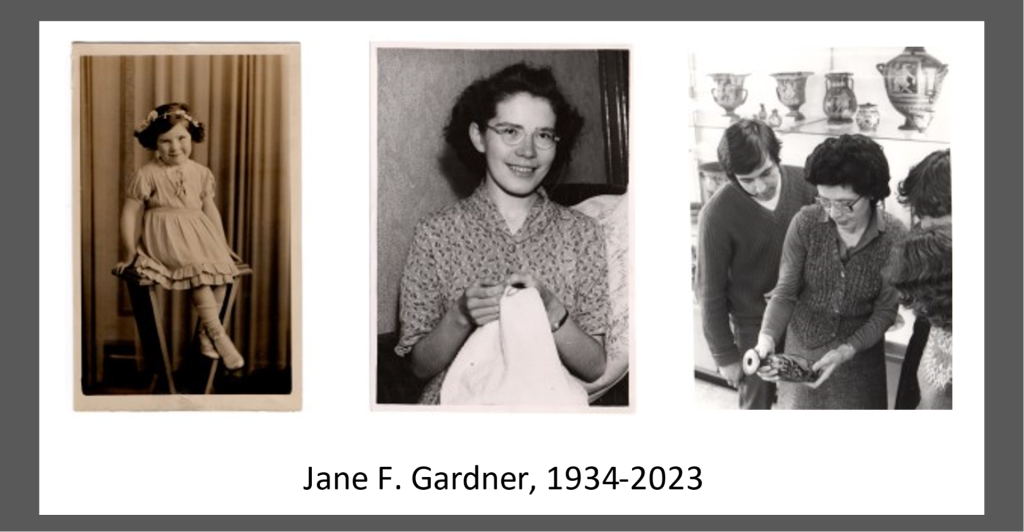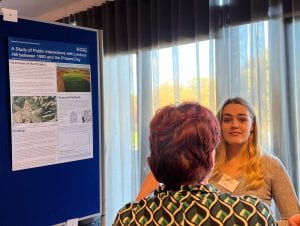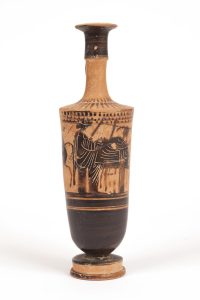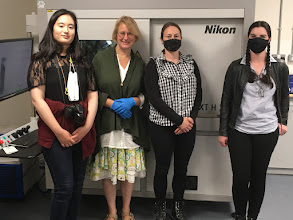
Reading’s Department of Classics held a memorial for the late Professor Emeritus Jane F. Gardner on April 26th. Jane was a landmark of the Department for many decades, not only because of the length of her employment (from 1963 to her retirement in 1999), but also because of her strong character and her utter commitment to the Reading Classics community on all its levels, from undergraduates to professors. Long after her retirement, Jane continued to come in to visit colleagues and attend research seminars, even when her declining mobility necessitated the use of a wheelchair. It was therefore wholly fitting that members of the Department – including those who have moved on to other posts, or retired – came together to celebrate her life, work, and many qualities.
The programme from the event (designed by Ure volunteer and graphic designer Matthew Knight), which can be found here, combined personal reminiscence with academic reflection, and covered the many facets of Jane’s long career: Roman historian, specialist in Roman law, Curator of the Ure Museum of Greek Archaeology, and expert referee of book manuscripts for Cambridge University Press. It opened with a Latin encomium, written and beautifully read by our Professor Eleanor Dickey, a distinguished practitioner of spoken Latin. The text of the encomium is included in the programme; Jane would have much enjoyed its combination of deep respect and affectionate levity.
This combination marked the whole event, especially the drinks reception which followed the formal presentations, an opportunity for reminiscence and for people to swap their favourite Jane stories. I overheard many laughing accounts of her irascibility, but also even more numerous stories of her generosity – with her time and her expertise, directed into helping students, junior colleagues, and Classicists in other Universities who approached her for advice on Roman law.
The success of the gathering was greatly enhanced by the help of our student volunteers, Shona Carter-Griffiths, Jacinta Hunter and Daisy Roffe. Also essential to the smooth running of the whole memorial was doctoral researcher Edward Ross, who provided IT support and also arranged the music which played quietly at the start of the gathering and during the reception. It was Mozart, at Jane’s own request: ‘Not too frivolous … but not too gloomy either!’ was her not-entirely-helpful stipulation. Finally, it is important to note that the presentations were recorded by Daisy Roffe; once the recording has been edited and captioned, we will make it available for those unable to attend the event, or indeed wishing to relive it.
Finally, there was a third element to the event: the launch of a temporary exhibition on Jane’s life, in the Ure Museum (where it can still be viewed), whose creation was led by Assistant Curator Jayne Holly. Central to this exhibition was a number of pictures from Jane’s not unimportant collection of art, on temporary loan. These include works by Jenny Halstead and Terry Frost, reflecting Jane’s commitment not only to art (she was a longstanding Friend of the Royal Academy, and a great lover of galleries and exhibitions while her health allowed her to visit them), but also her interest in Reading’s life and culture. Many UoR academics live in Oxford or London, justifiably drawn to the proximity of first-rate libraries, but Jane settled in Lower Earley and stayed there until the day before she died. For this reason, we were especially glad that several of her neighbours were able to join us for the memorial.




















 shire Museum in Woodstock
shire Museum in Woodstock